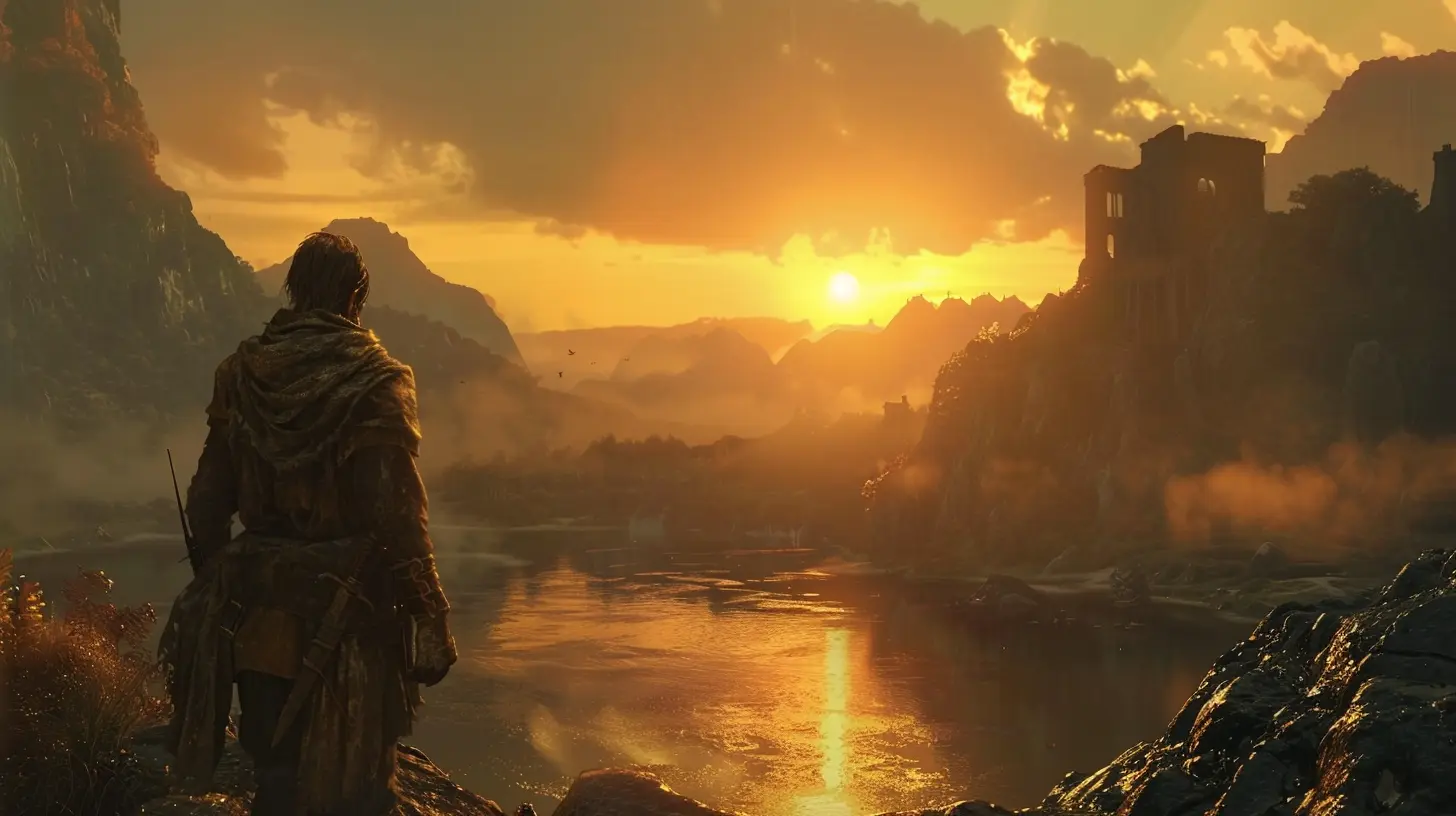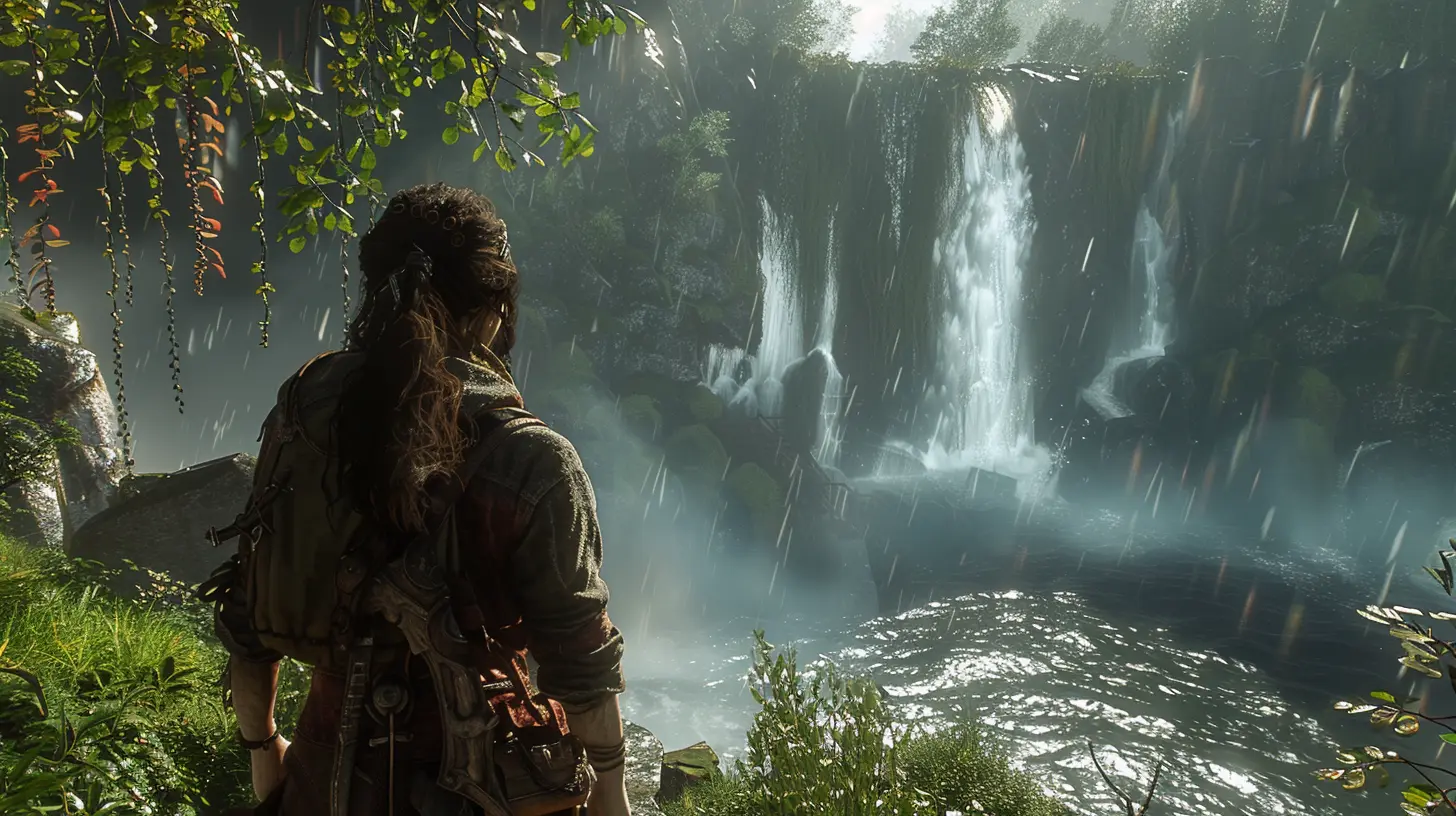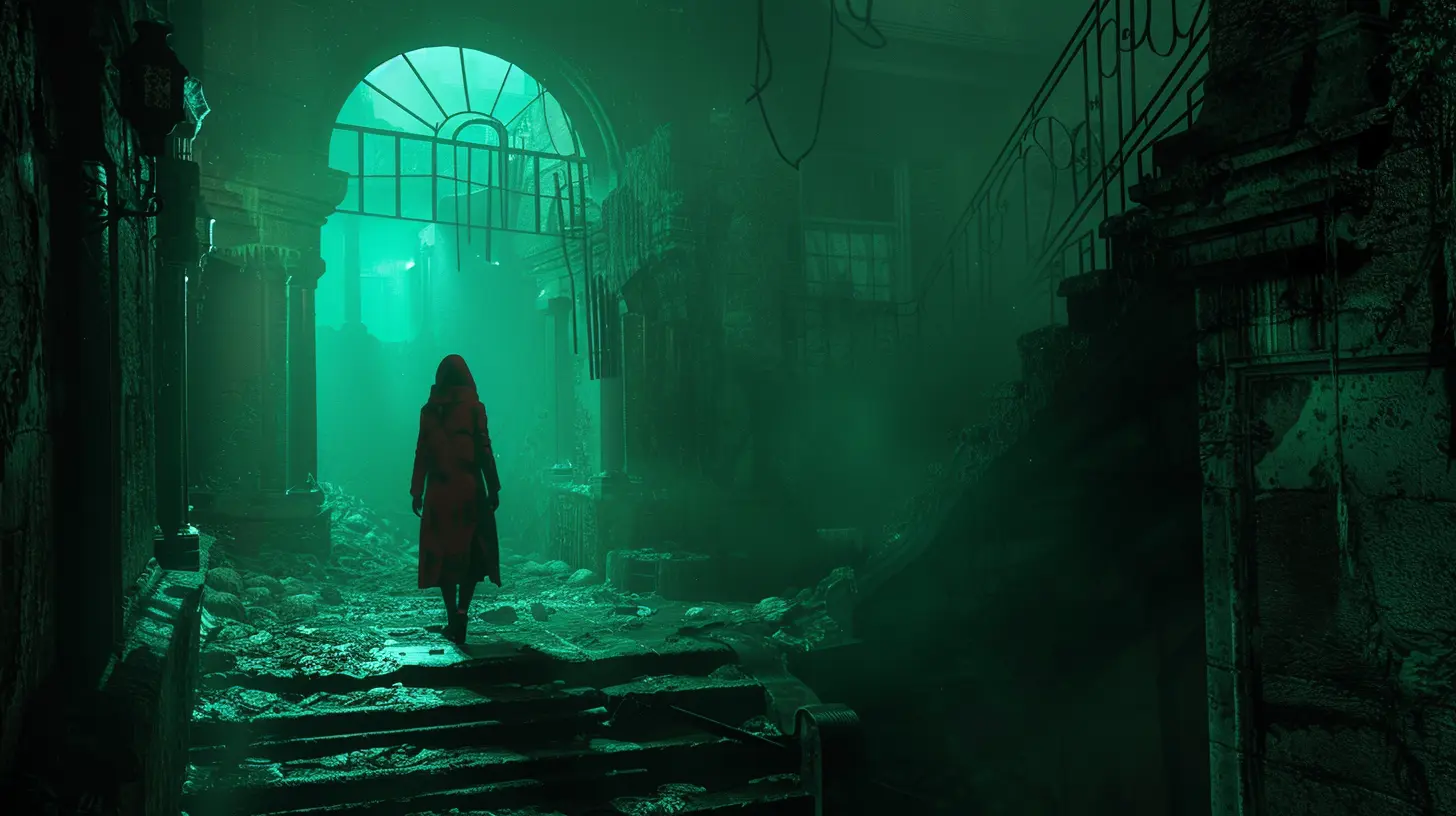How Narrative Choices Shape the Outcome in Adventure Games
20 July 2025
Adventure games aren’t just about solving puzzles or exploring fantastical worlds; they’re an intricate dance between story and agency. If you've ever agonized over a dialogue choice or hesitated before making a crucial in-game decision, you’re not alone. That’s the magic of narrative choices in adventure games—they hand you the wheel, letting you craft your own story. But how exactly do these decisions shape the outcome of a game? Do they really matter, or are they just smoke and mirrors? Let’s break it down and talk about why your choices are far more impactful than they might seem.

Why Narrative Choices Are the Backbone of Adventure Games
Adventure games are like interactive books or movies where you don’t just watch the story unfold—you shape it. This genre thrives on player agency, making you feel like your decisions matter. Narrative choices act as the glue, holding everything together. Instead of passively consuming a story, you’re actively contributing to it. Cool, right?Yet, not all games handle this equally. Some offer binary "yes or no" decisions that lead to different branches, while others dive headfirst into complex web-like narrative structures. These choices don’t just change the plot; they alter your relationship with characters, tweak gameplay experiences, and sometimes even affect the game’s ending (hello, Mass Effect trilogy fans!).
Imagine if "choice" was stripped from games like Life is Strange, The Walking Dead, or Detroit: Become Human. They’d lose their soul. It’s the tension of choosing between saving one character or another, or deciding whether to side with a rebel cause or uphold the law, that makes the experience memorable.
Choice vs. Illusion of Choice
Okay, let’s get real for a second. Not every “choice” in adventure games actually changes the story. Some games are sneaky and use what’s called the “illusion of choice.” This is when your decisions feel meaningful in the moment but ultimately steer you back to the same predetermined outcome.Take Telltale Games, for example. They’re notorious for this. Your choices do impact the dialogue and relationships with characters, but the overarching story often plays out the same no matter what you do. Does that make the choices less valid? Not necessarily. Even if the plot doesn’t spiral into wildly different directions, the emotional investment you feel is still very real. And honestly, isn’t that the point of storytelling?
But when games do follow through on multiple branching pathways, it feels like magic. Titles like The Witcher 3, Heavy Rain, and Until Dawn deliver that punch by making your choices ripple throughout the entire narrative. One small dialogue decision can snowball into something massive later on—kind of like a butterfly flapping its wings and causing a hurricane halfway across the world.

Consequences: The Weight of Your Decisions
If there’s one thing players love, it’s consequences. No one wants to feel like their choices are meaningless. Adventure games that nail the art of consequences draw players in and keep them invested.Let’s take Life is Strange as an example. In the first game of the series, you play as Max, a teenager who can rewind time to alter events. Sounds empowering, right? But here’s the kicker—every choice has a consequence, and not all of them are predictable. Saving one person might put another in danger. Those moments of moral dilemma make you pause and genuinely think, “What would I do in real life?”
Another noteworthy example is Mass Effect. Every decision you make in this sci-fi epic—from who you save to how you treat your crew—affects the story's ending and shapes how other characters perceive you. Your choices stick with you across multiple games in the trilogy. That’s some next-level commitment.
This is what makes choice-driven games so special. Unlike traditional storytelling, you’re not just along for the ride; you’re steering the ship. And yes, sometimes you crash it.
Moral Dilemmas and Emotional Ties
Adventure games love throwing moral dilemmas at you like curveballs. Should you lie to protect a friend? Sacrifice a group of people to save your loved ones? When the line between right and wrong gets blurry, the stakes feel real.A game that excels in moral complexity is The Witcher 3: Wild Hunt. Geralt, the protagonist, constantly faces tough decisions. Many choices in The Witcher 3 have no clear “good” or “bad” outcome—just shades of morally grey. And that’s the beauty of it. Life is messy, and these games reflect that.
Now, let’s talk about relationships. Adventure games thrive when they make you care about the characters. Think about The Walking Dead’s Lee and Clementine. Every decision you make affects their bond and, ultimately, the story’s emotional impact. When players are emotionally attached, the weight of their decisions hits harder.

The Role of Replayability
Here’s the thing: narrative choices don’t just shape a game’s outcome—they shape its replayability, too. When you know your decisions lead to different endings or storylines, you’re more likely to pick up the controller for a second (or third) playthrough.Games like Detroit: Become Human take replayability to insane levels. With dozens of potential endings and various branching paths, you can spend hours exploring “what if” scenarios. What if you made peace instead of fighting? What if you sacrificed one character to save another? Every playthrough feels fresh because your choices genuinely alter the experience.
Even so-called "linear" games like Heavy Rain entice players to replay just to see different outcomes. You might not think twice about a decision during your first playthrough, but on your second run, you realize how that small action snowballed into big consequences.
Games That Do It Right
Let’s give a shoutout to some games that absolutely nail narrative choices:- The Witcher 3: Wild Hunt: Moral complexity at its finest.
- Life is Strange: A masterclass in emotional storytelling.
- The Walking Dead: Gut-wrenching decisions that stick with you.
- Detroit: Become Human: Branching pathways galore.
- Until Dawn: Choices that dictate who lives and who dies.
These games don’t just give you options; they give you meaningful options. And that’s what separates a decent adventure game from a truly unforgettable one.

Can Narrative Choices Shape the Industry’s Future?
As technology improves, the potential for more intricate narrative experiences grows. Developers are getting better at balancing freedom of choice with cohesive storytelling. Imagine how AI or procedural generation could revolutionize narrative choices in the future. Maybe we’ll see games where every decision feels handcrafted, even if it’s not.That said, there’s still a fine line to walk between player freedom and narrative cohesion. Too much freedom can lead to fragmented stories, while too little makes choices feel hollow. Striking the perfect balance is an art—and only a handful of games get it right.
Final Thoughts
Adventure games with narrative choices are like a choose-your-own-adventure book brought to life. They’re immersive, thought-provoking, and often deeply emotional. Whether it’s deciding the fate of a beloved character or navigating moral grey areas, these choices keep players coming back for more.Are all choices equal? Definitely not. Some games do a better job of honoring your decisions than others. But even the illusion of choice can make a lasting impression when done right. At the end of the day, it’s not just about the destination—it’s about how you got there.
So, the next time you’re faced with a tough decision in an adventure game, don’t sweat it too much. Sure, you might mess things up, but isn’t that half the fun?
all images in this post were generated using AI tools
Category:
Adventure GamesAuthor:

Lana Johnson
Discussion
rate this article
2 comments
Heidi McVeigh
Adventure games remind us that every choice shapes our journey. Embrace the narrative, and let your decisions carve your unique path to success!
January 22, 2026 at 5:05 PM
Lennox White
This article beautifully captures the emotional weight of narrative choices in adventure games. It's a reminder of how our decisions can resonate deeply, shaping not just outcomes, but our own experiences.
July 29, 2025 at 2:44 PM

Lana Johnson
Thank you! I'm glad you felt the emotional depth of the narrative choices. It’s fascinating how those decisions impact both the story and our personal journeys.


